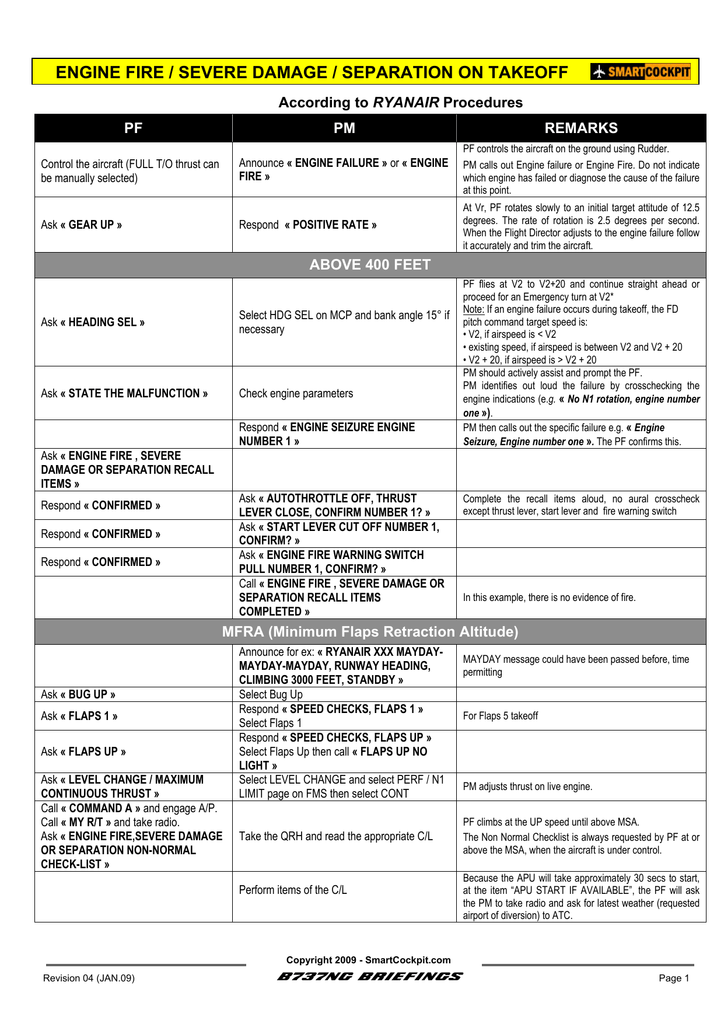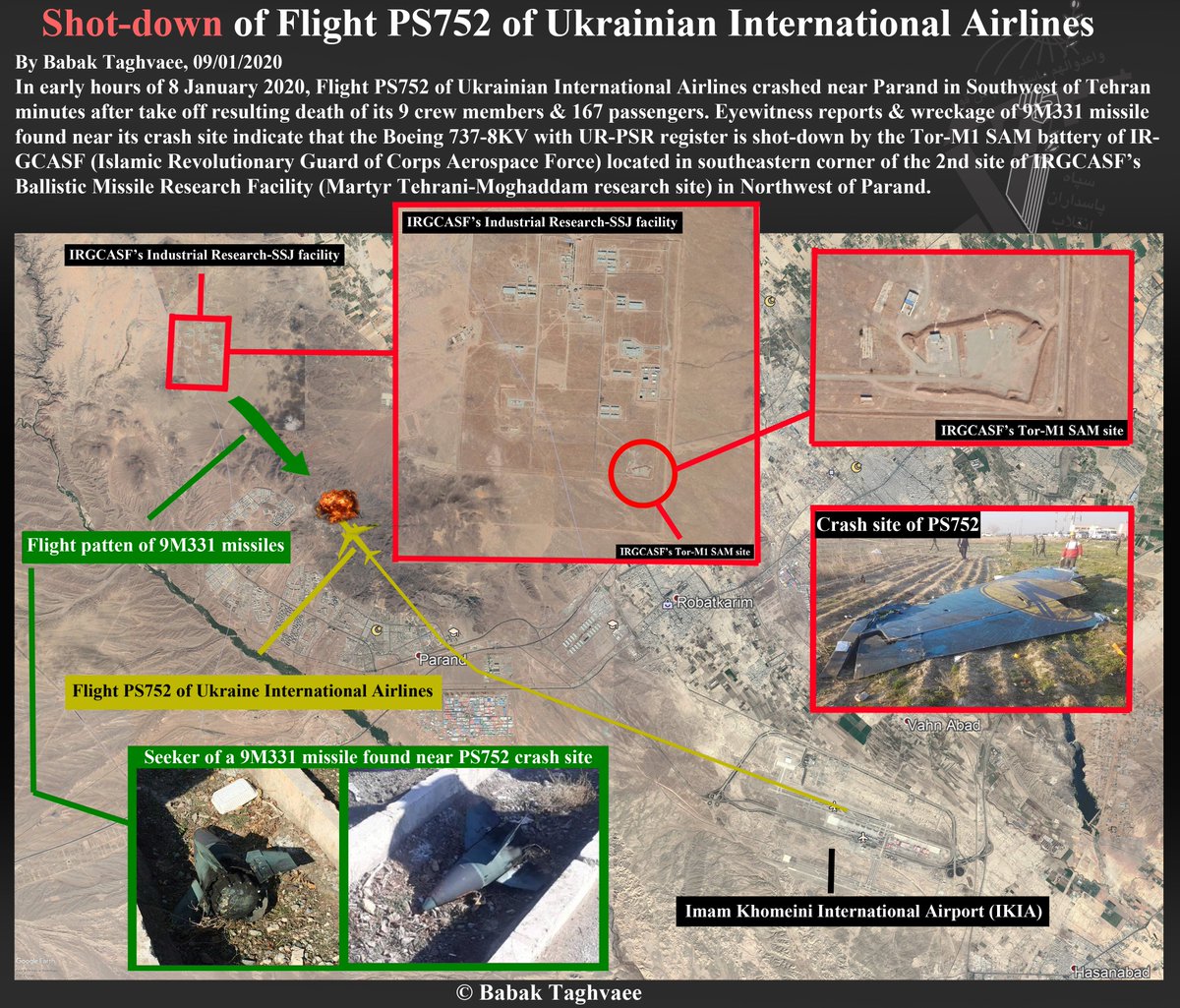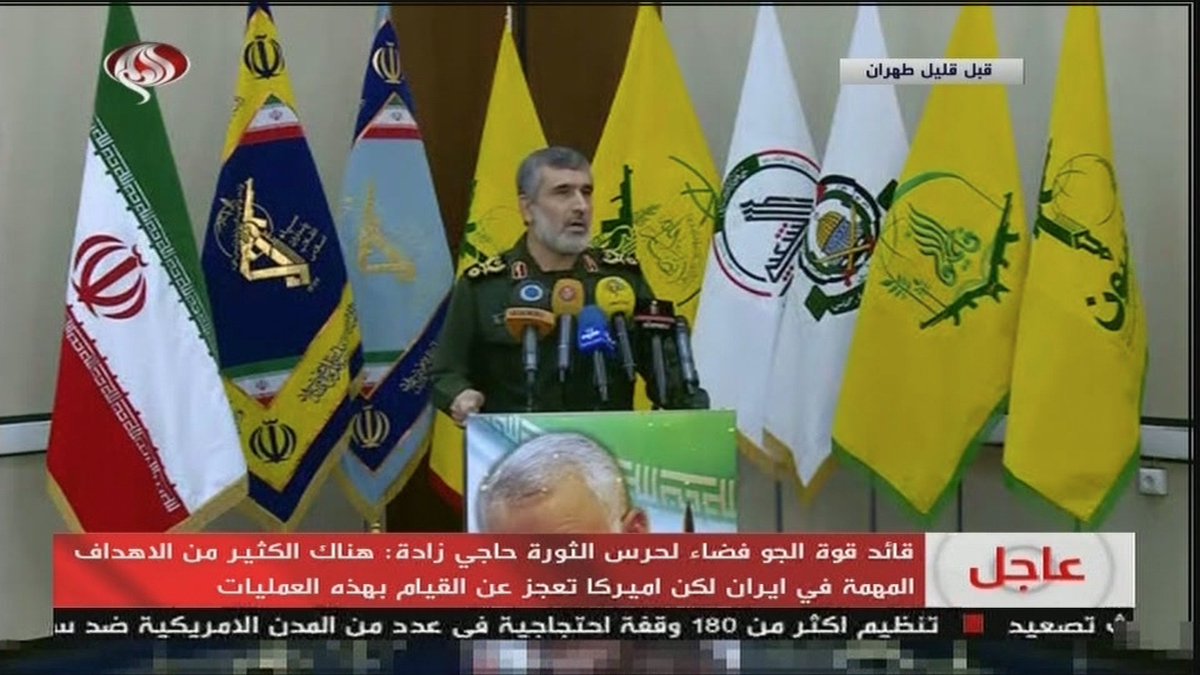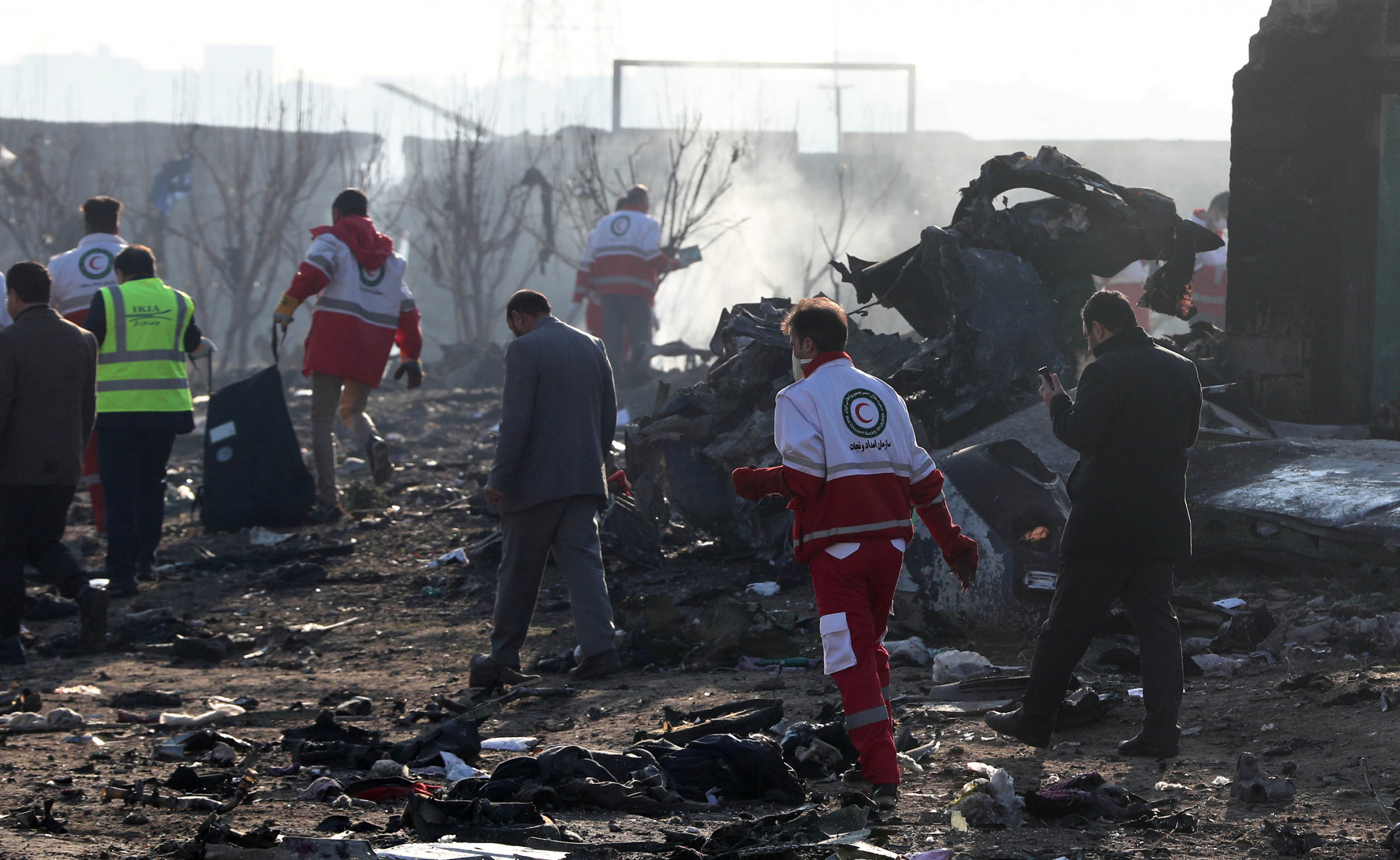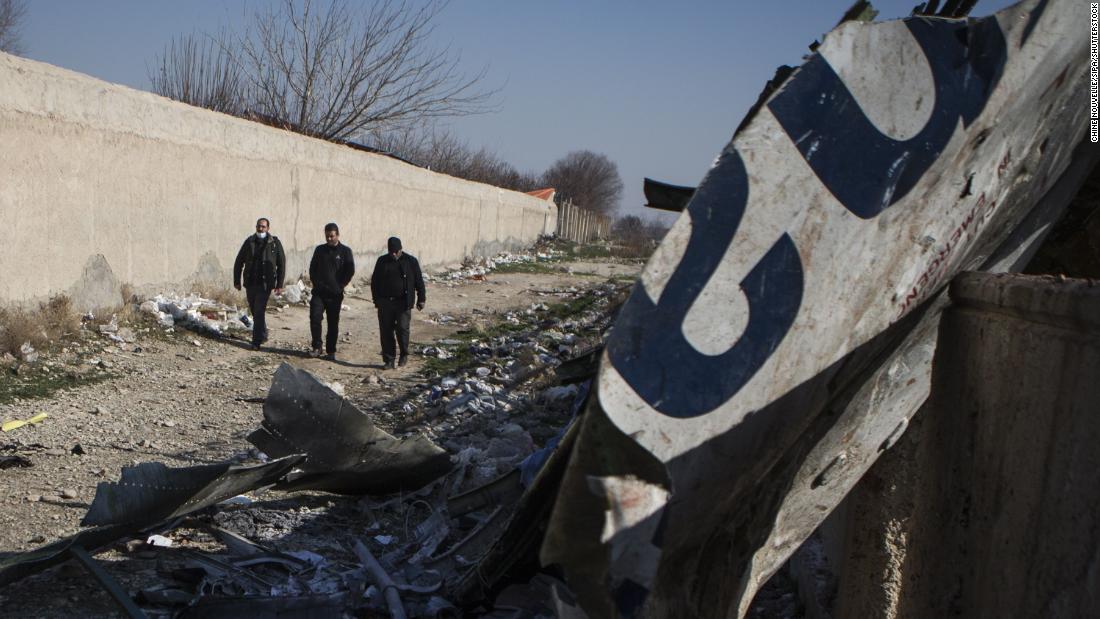The Ukrainian flight that crashed just outside the Iranian capital of Tehran was struck by an anti-aircraft missile system, a Pentagon official, a senior U.S. intelligence official and an Iraqi intelligence official told Newsweek.
Ukraine International Airlines Flight 752, a Boeing 737–800 en route from Tehran Imam Khomeini International Airpot to Kyiv's Boryspil International Airport, stopped transmitting data Tuesday just minutes after takeoff and not long after Iran launched missiles at military bases housing U.S. and allied forces in neighboring Iraq. The aircraft is believed to have been struck by a Russia-built Tor-M1 surface-to-air missile system, known to NATO as Gauntlet, the three officials told Newsweek.
Two Pentagon officials assess that the incident was accidental. Iran's anti-aircraft were likely active following the country's missile attack, which came in response to the U.S. killing last week of Revolutionary Guard Quds Force commander Major General Qassem Soleimani, sources said.
U.S. Central Command declined to comment on the matter when contacted by Newsweek.
The incident was first reported by Iranian semi-official media outlets, which cited the country's Red Crescent Society as assessing that the initial cause appeared to be mechanical failure. The Ukrainian embassy in Tehran shared this view in a statement, but later retracted it, with Kyiv warning against any preliminary assessments.
Images began to circulate Wednesday of what appeared to be fragments of a Tor M-1 missile said to have been found in a suburb southwest of Tehran. Ukraine Security Council Secretary Oleksiy Danylov said Thursday in a statement that contact with a Tor M-1 system was among the potential causes for the plane's destruction that his country was looking into.
Other potential scenarios involved a collision with an unmanned aerial vehicle (UAV) or another flying object, technical malfunction and a terrorist attack.

